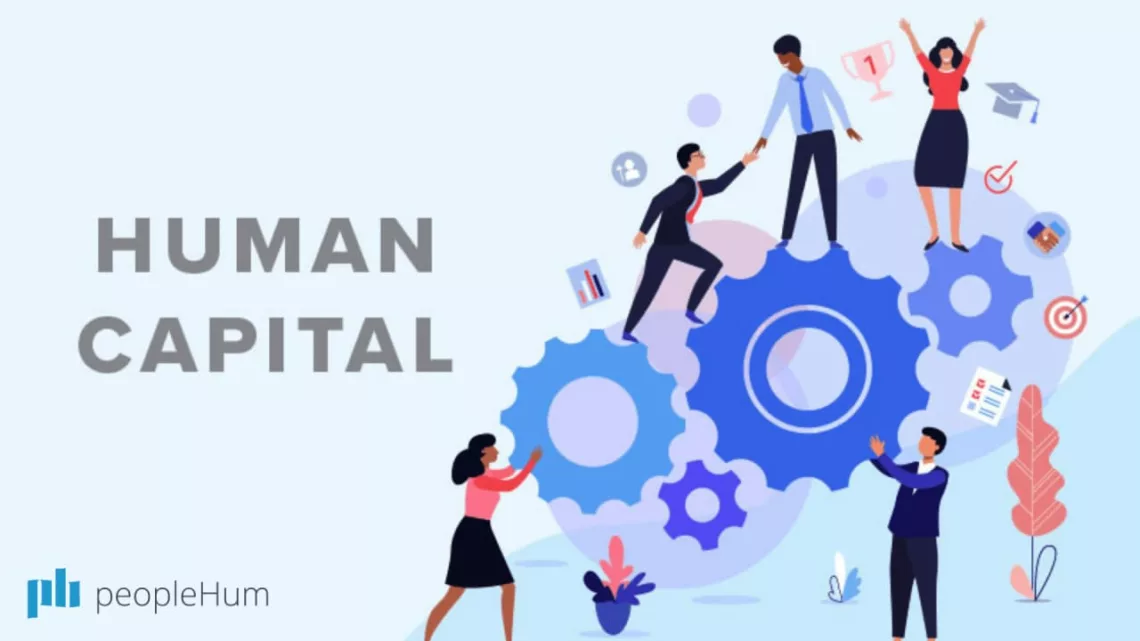Organisations have become more aware of the need to seriously invest in their human resources as they experience constant change in many aspects of their businesses.
Not surprisingly, the importance of education, training, and development in private and public sector organisations has come to the forefront, as it has been noted that without appropriately directed continuous learning strategies at both the organisational and individual levels, organisations will rapidly fall behind their competitors.
The term human capital refers to the economic value of a worker’s experience and skills. Human capital includes assets like education, training, intelligence, skills, health, and other things employers value such as loyalty and punctuality.
As such, it is an intangible asset or quality that is not listed on a company’s balance sheet. Human capital is perceived to increase productivity and thus profitability. The more investment a company makes in its employees, the chances of its productivity and success become higher.
An entrepreneur and business management expert, Dr Timi Olubiyi explained that “human capital management is that aspect of management that is concerned with all aspect of managing the human resources of an organisation. Human capital management involves the management of human capital at work irrespective of the type of organisation in question, its products, size or structure, philosophy of its management must procure human resources of it to achieve its stated objectives.”
He stated that “Human capital management practices spreads all the aspect of co-operate and organisation activities. It therefore becomes the responsibility of all those who manage people in the organisation as well as being a description of work of those who are employed as a human capital specialist.
“More especially, human capital management involves determining the organisation and the use of human resources, recruiting and selecting the best available employees acting as liaison between the union and the government organisation and handling other matters relating to employees will being.”
Olubiyi however said, many organisations have paid little or no interest in the effective human capital management which has resulted to how productivity high rate of employee interest and other ugly social menace, thereby hindering the organisation growth.
He added that “The growth of any organisation lies solely on the growth and development of his employee. In a case where human capital management is not well practiced in any organisation the growth of the employees will not be achieved and the result is that a stunted growth or declining profit will be recorded.”
Ways To Boost Human Capital In Any Organisation
HR and talent professionals have known it for years and now it is been proven: a better-prepared workforce delivers better results.
Train Frequently: It is no doubt that the development of the organisation depends on its employees. That is why the recruitment of the right employee at the right place is a vital responsibility of human resource experts for the organisation. It does not mean that an organisation can neglect fresh candidates for the job. After that, the organisation can provide its employees with frequent training which will help to upgrade their skills and help them to cope with upcoming challenges.
Well-Defined Work Responsibilities: It must be defined to all employees that who are responsible for which work especially the key areas of the required task which should be defined according to the employees’ expertise otherwise it would only waste the time of both employee and organisation with zero outcomes. The organisation can also define milestones to keep everyone’s task on the track.
Monitor the Performance: The performance of the employees must be monitored by the managers or senior authorities of the specific department because it can increase the human capital.
Communicate Directly: The approach of Hitler cannot work in this era of corporate. No matter what is the position whether junior or senior, every employee should have the right to enter into the office of HOD (Head of Department) or manager to discuss any query or task. Direct communication is the bridge between problems and solutions among the employees and senior authorities. Every employee should allow giving his idea, suggestion, and feedback regarding any matter or project.
Motivation: The motivation of employees is one of the important responsibilities of any organisation to keep itself productive. It is important to motivate the human workforce from time to time in various ways. It could be monthly meetings on employees’ general issues, appreciation in the form of incentives or awarding them as the Employee of the Month/ Organisations should not wait for the yearly promotions, small encouragements can give big rewards as well.





